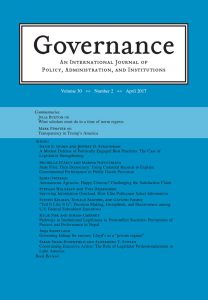Want to Help Marginalized Students Improve in Schools? Stop “Stop and Frisk” (and other punitive practices, too).
[ This article was originally published at Masculinities 101 ]
As I have pointed out earlier, despite public discourse claiming otherwise, not all boys are doing far worse than female students in school; much less are they performing at historically low levels. At the same time, gender gaps (in achievement as well as in college enrollment) are much larger for African American and Latino students than they are for students from white middle-class families:
“[T]he gender gap between college-age middle-class white males and white females is rather small, 51% women to 49% men. But only 37% of black college students are male, and 63% female, and 45% of Hispanic students are male, compared with 55% female” (Kimmel 2010: 25).
But what factors can explain the fact that male Black and Latino students are underrepresented at colleges and universities both compared to white students and compared to African American and Latina women? One answer to this question can be found in how marginalized boys are forced to navigate definitions of masculinity within a U.S. culture that views them as innately suspicious and potentially criminal.
As I have written previously, research from the fields of feminist education studies and masculinity studies can help answer some of these questions: Scholars have argued that it is the specific constructions of masculinity that boys aspire to that end up interfering with their motivation for and engagement in education. If some boys are unable to establish and proof their masculinity by being at the very top academically, they may more quickly than girls resort to alternative expressions of masculinity (emphasizing ‘coolness’ or openly defying teachers) that harm their educational prospects in the long run.
Sociologist Victor Rios, in his ethnographic study of Black and Latino teenagers growing up in Oakland, goes one step further. He convincingly shows how these boys had been treated as suspicious and de facto criminal by the police – as well as their schools – even before they had ever engaged in any illicit activities. Frequent experiences of being stopped (and brutalized) by police officers as well as being channelled into the criminal justice system by their teachers and principals for relatively minor infractions, practically labelled them as deviant. More importantly, the experience of being labelled (and treated as) a criminal despite attempts to keep their distance from gangs and not be involved in criminal activities, led some of these boys to lose any faith and respect left for authorities and ‘the system’: What is the point of resisting the temptation and the pressure of peers involved in gangs, if you are always assumed to be guilty regardless? The sense of despair and loss of trust in the authorities is well captured by this video (trigger warning for racist language) about Alvin, a teenager stopped-and-frisked in Harlem, giving testimony of his experiences of being brutalized (this, of course, should not be taken to imply that this young men is assumed to turn towards criminal activity because of his experiences):
[youtube=http://www.youtube.com/watch?v=7rWtDMPaRD8&w=560&h=315]
Moreover, navigating messages about masculinity in this hostile terrain leads these teenagers down paths that end up harming them in the long run. However, it is not the “culture of poverty” of right-wing lore that is keeping these young men back but rather the pressure to adhere to standards of masculinity – that are by no means vastly different from mainstream U.S. versions of masculinity – against the backdrop of a failing economic system that allows for little hope for upward mobility. As Rios points out, some of the young men in his study attempted to create their versions of breadwinner masculinity by interviewing for regular – albeit low paying – jobs but regularly gave up hope after dozens of unanswered applications. Yet, they were committed to ideas of individual (male) responsibility, instilled in them by American culture at large and reinforced by their teachers and probation officers who called on them to “man up” and “become men” by rejecting criminal activity and finding employment. Thus, these boys framed their economic exclusion as a matter of personal failure rather than as an economic system failing them – right in line with mainstream notions of individual responsibility. At the same time, the street offered these male adolescents alternative routes towards manhood, both through standing up to rival gangs and through actually earning a living by engaging in illegal activities; paths to masculinity that must seem more achievable than legal ways that are blocked by a failing economic system as well as punitive and racist policies that appear to these boys to be designed solely for channeling them into the criminal justice system regardless of their behavior.
Granted, “Stop and Frisk” is but one of the many policies and structural barriers impacting the life of marginalized boys and doing away with it will clearly not remove all the obstacles these youths are facing. Nevertheless, if we as a society are actually interested in improving the educational aspirations and achievements of male students, moving away from punitive and racist tactics such as “Stop and Frisk” clearly needs to be one priority.
—
[ This article was originally published at Masculinities 101 ]
—
Further Reading:
Connel, RW. 2000. The Men and the Boys. Berkeley/ LA: University of California Press.
Kimmel, Michael. 2010. Boys and School. A Background Paper on the ‘Boy Crisis’. Stockholm.
Rios, Victor M. 2011. Punished: Policing the Lives of Black and Latino Boys. New York: NYU Press.




1754-9469/asset/society_affiliation_image.gif?v=1&s=9197a1a6ba8c381665ecbf311eae8aca348fe8aa)

3 Responses
[…] Lens argues that stopping stop-and-frisk (among other things) could help close the education […]
[…] 3. Want to Help Marginalized Students in Schools? Stop ‘Stop and Frisk’ and Other Punitive Practice… […]
[…] “Want to Help Marginalized Students in Schools? Stop “Stop and Frisk” and Other Punitive Pract… – Markus Gerke […]